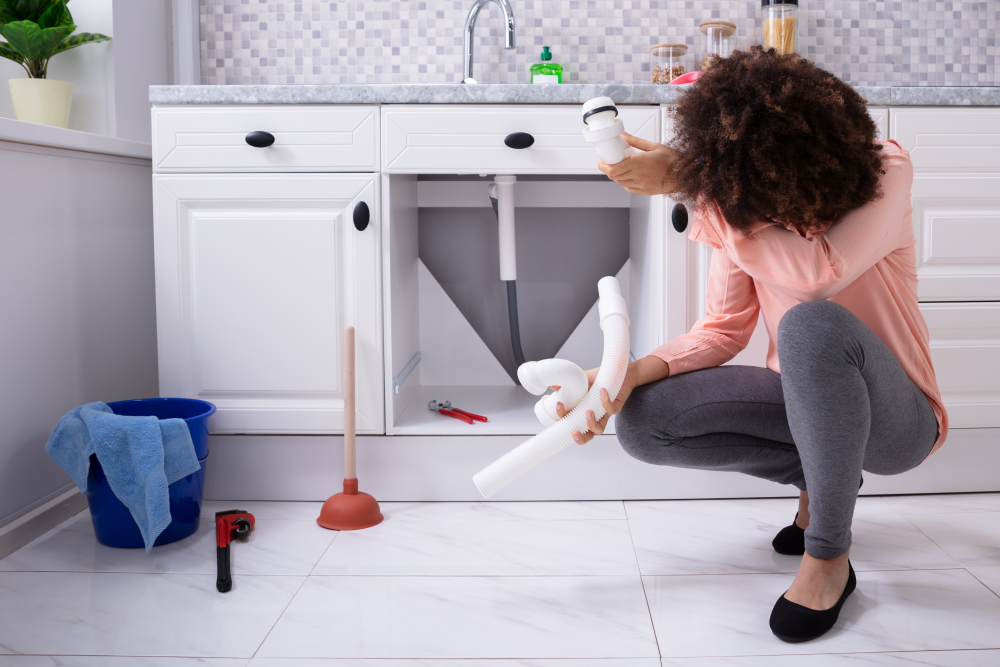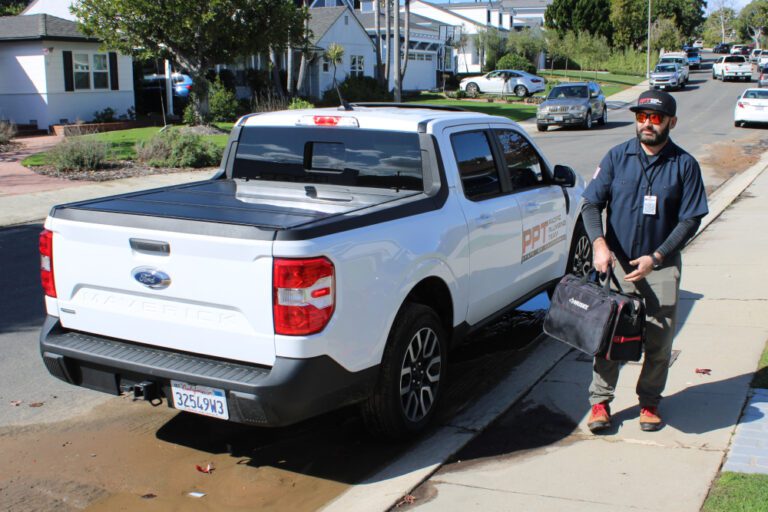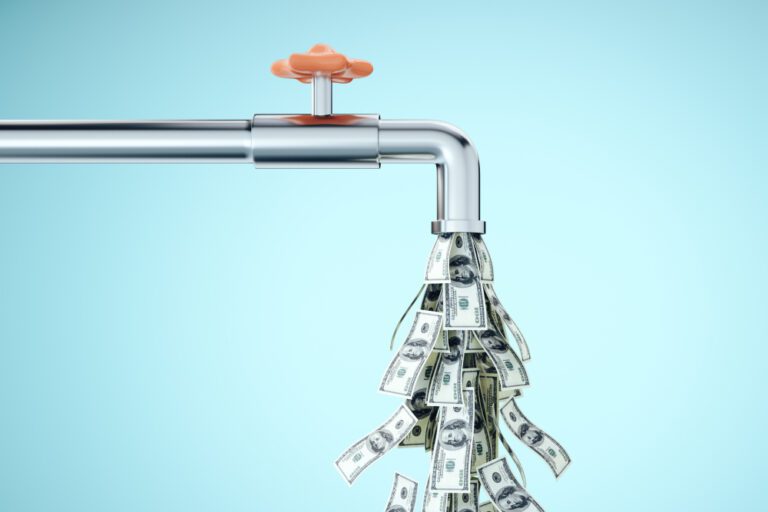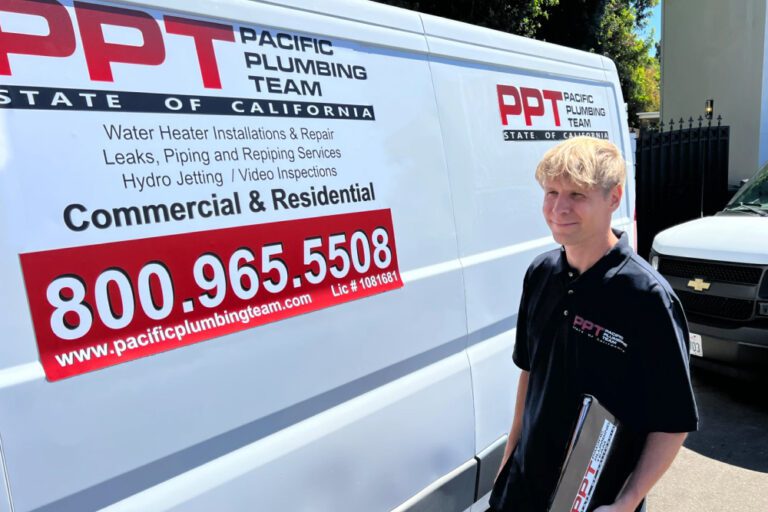Ensuring that your plumbing is in top-notch condition is crucial for maintaining a safe and comfortable living environment. However, plumbing issues can arise unexpectedly, causing disruptions and potential damage if not addressed promptly.
That’s why it’s essential to be aware of the signs that indicate a need for emergency plumbing services. From sudden water pressure drops to burst pipes and sewage backups, recognizing these indicators can save you from costly repairs and inconvenience down the line.
In this article, we’ll explore the top 10 signs your home needs an emergency plumber on call ASAP. So, if you notice any of these warning signals, don’t hesitate to take action and contact a professional plumber to tackle the problem head-on.
1. Sudden Water Pressure Drop
Curious to know when to call a plumber? If you’ve ever turned on your faucet or shower, expecting a strong flow of water, only to be met with a weak trickle instead, you’ve experienced a sudden water pressure drop. This frustrating experience is often a clear indication that something may be wrong with your plumbing system.
Sudden water pressure drops can stem from various issues, such as pipe leaks, clogged pipes due to sediment or debris buildup, malfunctioning pressure regulators causing fluctuations, problems with the municipal water supply, corroded pipes, issues with the water heater, such as sediment accumulation or malfunctioning heating elements, or faulty valves restricting water flow.
Understanding the causes and implications of sudden water pressure drops is crucial for maintaining the functionality and efficiency of your home’s plumbing.
Being aware of these potential causes enables you to address sudden water pressure drops promptly, ensuring the smooth operation of your plumbing system. You can do this with emergency plumbing repairs.
2. Burst Pipes
Burst pipes are a homeowner’s nightmare, causing extensive water damage and disrupting daily life. If you’re wondering what is a plumbing emergency, burst pipes are one of them. They often occur due to freezing temperatures, which cause water inside pipes to expand and burst.
Corrosion weakens pipes over time, making them susceptible to bursting, while high water pressure strains the plumbing system. Additionally, clogged pipes from debris buildup can lead to blockages and bursts.
Aging pipes in older homes and physical damage from construction or tree roots also increase the risk. Proper installation and maintenance, including monitoring for damage and upgrading to durable materials, are crucial for preventing burst pipes.
Before you have this problem, it’s important that you contact reliable plumbers immediately. Moreover, make sure you’ve asked yourself questions regarding these plumbers, such as, ‘do plumbers work at night?’, ‘do plumbers work on weekends?’, ‘do plumbers work on Sundays’?
You save yourself from a lot of trouble if you have someone to call for plumbing emergencies.
3. Sewage Backup
Sewage backup is a nightmare for homeowners. It poses significant health risks and wreaks havoc on properties when blockages in sewer lines force sewage to overflow into homes through drains and toilets.
Common causes include tree roots, grease buildup, and foreign objects flushed down toilets. Heavy rainfall or flooding can overwhelm sewer systems, leading to backups. Malfunctions in municipal sewage systems, like pump failures or damaged pipes, can also result in backups.
Additionally, clogged drain lines and structural damage to sewer lines within properties contribute to sewage backup. Proper maintenance, including regular drain cleaning and inspection of sewer lines, is essential for prevention.
4. No Hot Water
No hot water is a frustrating inconvenience that disrupts daily routines, from showers to dishwashing. Typically, the culprit is a malfunctioning water heater. Issues like a faulty heating element, sediment buildup, or a malfunctioning thermostat can hinder water heating.
Gas water heaters may experience pilot light problems. Meanwhile electric ones can face electrical issues like tripped breakers or faulty wiring. Sediment buildup in the water heater tank reduces efficiency, remedied by regular flushing.
Incorrect thermostat settings or an undersized tank can also lead to insufficient hot water. Gas supply issues can affect gas water heaters’ performance. Understanding these causes helps restore hot water functionality and ensure household comfort.
5. Persistent Clogs
Are you wondering when to call a plumber for a clogged drain? Persistent clogs in plumbing fixtures are more than just an inconvenience. They disrupt daily routines and pose the risk of water damage. These persistent blockages often stem from various factors.
Debris buildup, incorrect toilet usage, and invasive tree roots wreak havoc on plumbing systems. Even aging or damaged pipes can play a role, trapping debris and exacerbating clogs. Additionally, the presence of hard water deposits further restricts water flow, exacerbating the problem.
Accidental disposal of foreign objects down drains only compounds the issue. Furthermore, inadequate drain ventilation contributes to slow drainage, exacerbating the situation.
However, there’s hope! You can do regular maintenance practices. These may be proper cleaning, appropriate toilet use, and targeted treatments for tree roots that can effectively prevent clogs.
Furthermore, you can take proactive measures to mitigate clogging issues significantly. These may be inspecting and replacing old pipes, installing water softeners, and employing drain covers.
In cases where prevention falls short, making a plumber service call ensures proper drain ventilation to prevent clogs. It ensures not only the resolution of current clogs. It also the implementation of proper drain ventilation measures to prevent future blockages.
6. Leaking Fixtures
Leaking fixtures like faucets, toilets, and showerheads are more than just a nuisance—they waste water, increase bills, and can damage your home. Causes include worn seals, loose components, high water pressure, corrosion, improper installation, and deteriorated caulk or grout.
Aging fixtures are also prone to leaks. Regular inspection and maintenance, including tightening components and replacing corroded parts, prevent leaks. Installing a pressure regulator helps maintain optimal pressure.
Proper installation by a qualified plumber and timely replacement of old fixtures are essential for leak prevention.
7. Strange Odors
Strange odors from plumbing fixtures aren’t just unpleasant—they signal potential issues requiring prompt attention. Sewage odors may indicate sewer line or drainage problems. Meanwhile, musty odors suggest mold growth from leaks or inadequate ventilation.
Sulfuric odors resembling rotten eggs could signal hydrogen sulfide gas in water, requiring treatment. Chemical or metallic odors indicate water contamination from pipe corrosion or heavy metals.
Decaying food odors point to drain or garbage disposal buildup, while animal odors may signal pest infestations. Rotten wood odors hint at water leaks and structural damage, necessitating inspection and repairs. Addressing these odors promptly ensures a healthy and odor-free home environment.
8. Water Heater Malfunction
A malfunctioning water heater disrupts daily routines, leaving you with cold showers and frustration. Signs include lukewarm water, strange noises, leaks, rusty water, no hot water, increased energy bills, and age-related issues.
Malfunctions may stem from heating element or thermostat problems, sediment buildup, leaks, or corrosion. Prompt maintenance and inspection identify and address issues early. Flushing the tank, inspecting components, and contacting a professional plumber are essential for diagnosis and repair.
Aging water heaters nearing their expected lifespan may require replacement to avoid further issues. Regular maintenance and efficiency upgrades optimize performance and reduce costs.
9. Frozen Pipes
A malfunctioning water heater disrupts daily routines. It leaves you with lukewarm water, strange noises, leaks, fluctuating temperatures, or no hot water at all. Causes include heating element or thermostat issues, sediment buildup, leaks, or corrosion.
Troubleshooting and maintenance can identify and resolve these problems. Flushing the tank, adjusting settings, and seeking professional assistance are essential steps. Rusty or discolored water indicates corrosion, requiring tank flushing and inspection.
Aging water heaters nearing their expected lifespan may need a replacement for improved efficiency and performance. Regular maintenance and upgrades ensure reliable hot water availability.
10. Frozen Pipes
Frozen pipes pose a significant risk during winter, potentially leading to costly bursts and water damage. Causes include freezing temperatures, poor insulation, drafts, lack of heating, and outdoor exposure. Insulating pipes, sealing gaps, and maintaining consistent heating prevent freezing.
Disconnecting outdoor hoses and shutting off supplies before winter protects outdoor pipes. Thawing and refreezing increase stress on pipes, requiring precautions to prevent bursts.
Signs of frozen pipes include reduced water flow, frost on pipes, strange noises, and visible damage.
Acting quickly upon detection prevents bursting and damage, ensuring a hassle-free winter. If you have this plumbing problem, make sure to contact trusted and reputable plumbing companies right away.
Take Charge of Your Plumbing Protection
Your home’s plumbing system is vital for everyday comfort. However, emergencies like burst pipes or sewage backups can disrupt your life and drain your wallet. Understanding the signs and causes of these issues empowers you to take proactive measures.
Regular maintenance, such as inspecting for leaks and cleaning drains, is crucial for preventing emergencies. Additionally, stay alert for warning signs like strange odors or fluctuating water temperatures.
Consider partnering with a reputable commercial plumber like Pacific Plumbing Team for expert guidance and tailored solutions. Whether it’s routine maintenance or emergency repairs, a trusted plumber ensures your peace of mind.
Don’t wait for a disaster—act now to safeguard your plumbing. Investing in prevention today saves you time, money, and stress tomorrow. Remember, protecting your plumbing means protecting your home’s comfort and functionality for the long haul.
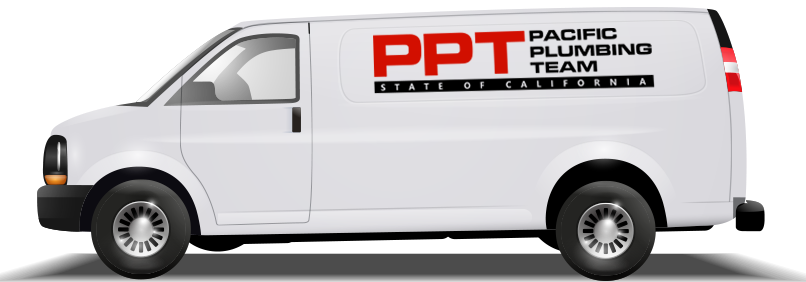
Your Partners in Plumbing Solutions
Don't let a clogged sink disrupt your daily routine. Contact Pacific Plumbing Company today for efficient and reliable solutions. Our experienced team is ready to tackle any plumbing challenge, providing prompt service and peace of mind. Let us handle the clogs so you can get back to what matters most.
